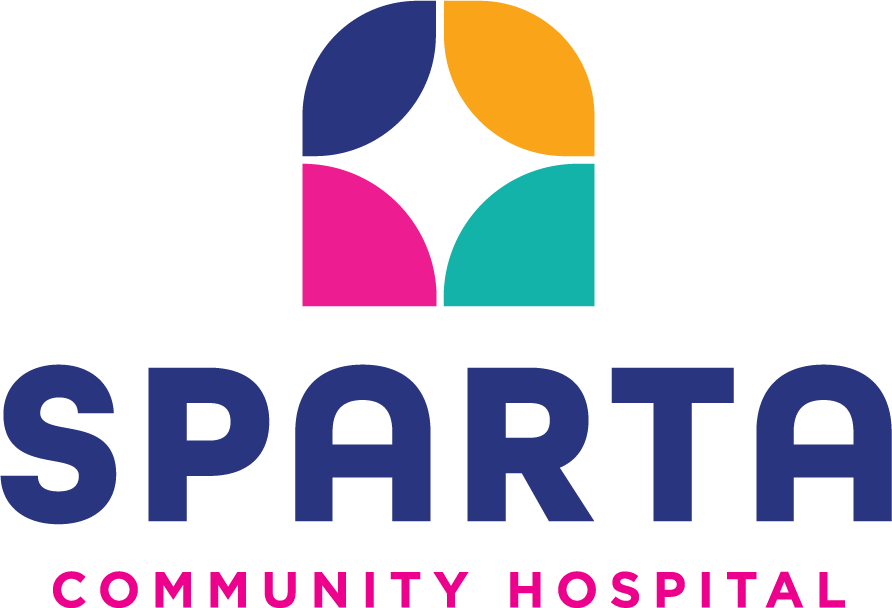Sparta Community Hospital now offers monoclonal antibody treatment for patients. Monoclonal antibodies were first authorized intravenously at infusion centers, but a recent study showed they can also be given as a shot. Sparta Community Hospital offers both.
The FDA authorized monoclonal antibody drugs from the companies Regeneron and Eli Lilly in November 2020, but only recently have they attracted more attention as the Delta variant of the virus that causes COVID-19 surges across the U.S.
Clinical trials show that Regeneron’s monoclonal antibody treatment, a combination of two antibodies called casirivimab and imdevimab, reduces COVID-19-related hospitalization or deaths in high-risk patients by about 70%. And, when given to an exposed person, monoclonal antibodies reduced their risk of developing an infection with symptoms by 80%.
The FDA has recently expanded what it means to be high-risk for severe COVID-19. Many more people now may qualify for monoclonal antibodies, including those with high blood pressure, heart disease, obesity with a body mass index (BMI) higher than 25, an autoimmune disorder, people taking immunosuppressant drugs, and people who are pregnant.
“As COVID-19 cases fluctuate nationwide, we have a therapy available to our patients,” says Joann Emge, CEO. “Whether you’ve just tested positive or have been exposed, monoclonal antibodies could help you and your loved ones avert COVID-19.”
Monoclonal antibodies are like the antibodies your body makes to fight viruses and other bugs, except that they are made in the labs of pharmaceutical companies. They are designed to target the coronavirus spike protein. Spike proteins help the virus infect its host by latching on to healthy cells. When the antibodies bind to the spike protein, they block the virus from entering your body’s cells. If the virus can’t enter cells, it can’t make copies of itself and continue spreading within the body.
When the person is already COVID positive, monoclonal antibodies will reduce the risk of them having severe symptoms that require hospitalization. If someone has been exposed, monoclonal antibodies can fend off the virus to reduce the risk of them from becoming sick.
These monoclonal antibodies differ from the vaccine. The vaccine helps stimulate and prepare your immune system to respond if or when you are exposed to the virus. Your immune system is then ready to create all these antibodies before they are needed.
Monoclonal antibodies boost the immune system after you are already sick, speeding up your immune response to prevent COVID-19 from getting worse. It is recommended to get the vaccine, as it already boosts the immune system preventing you from getting sick. While monoclonal antibodies are effective for about a month, they are long gone 6 months later, when a vaccine still offers significant protection.
Timing is critical with monoclonal antibodies. The earlier they are given, the more effective they are at treating or preventing COVID-19. They are most effective within the first 4 to 5 days of symptoms. Monoclonal antibodies can’t be given after 10 days of symptoms, so a delay in testing or seeking out treatment could mean there’s not a treatment available.
There are two authorized uses for monoclonal antibodies: To treat or stop COVID-19’s progression in a high-risk person who tests positive, and to prevent COVID-19 in a high-risk person who has been exposed.
To qualify for the treatment of mild or moderate disease, a person must test positive for COVID-19, have had symptoms for fewer than10 days, not be hospitalized or on oxygen because of COVID-19, and be at high risk for worsening symptoms of the disease.
The same groups of high-risk people can get monoclonal antibodies to prevent COVID-19 if they have been exposed. Based on CDC guidelines, if you or a loved one is immunocompromised and have and spent 15 minutes or longer within 6 feet of someone who tested positive, you likely qualify for a preventive monoclonal antibodies infusion or injection.
Call your Quality Healthcare Clinic provider today for more information about this treatment option available at Sparta Community Hospital, 618-443-1DOC (1362).

